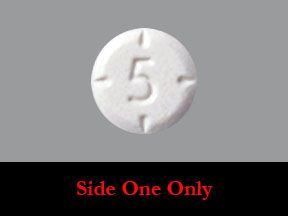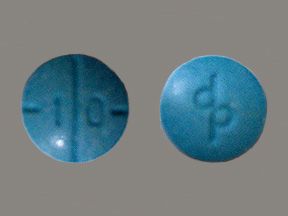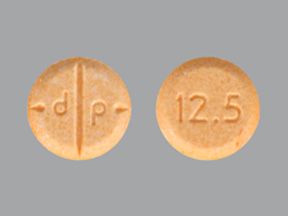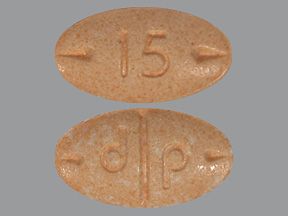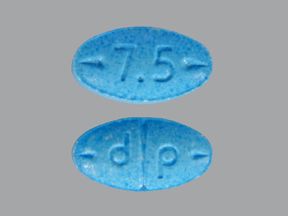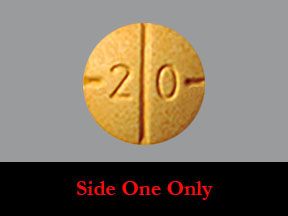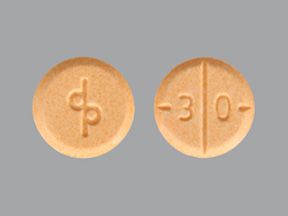If you have attention deficit hyperactivity disorder (ADHD) or narcolepsy, your doctor may prescribe Adderall to treat your condition. It’s a prescription drug that’s used in adults and some children to:
- treat ADHD
- help people with narcolepsy stay awake and alert during the day
Adderall basics
Adderall is a stimulant medication that contains two active drugs: amphetamine and dextroamphetamine. (An active ingredient is what makes a drug work.)
Adderall comes in two forms, both of which you swallow:
- Adderall immediate-release tablet
- Adderall XR (extended-release) capsule*
“Immediate release” means the drug is released into your body right away. “Extended release” means the drug is slowly released into your body over a long period of time.
* Adderall XR is prescribed to treat ADHD only. It’s not prescribed to treat narcolepsy.
Availability, April 2023
There is currently a shortage of Adderall in the United States. Learn more here. (Current as of April 2023.)
Like most drugs, Adderall may cause mild or serious side effects. The lists below describe some of the more common side effects that Adderall may cause. These lists don’t include all possible side effects.
Keep in mind that side effects of a drug can depend on:
- your age
- other health conditions you have
- other medications you take
Your doctor or pharmacist can tell you more about the potential side effects of Adderall. They can also suggest ways to help reduce side effects.
Mild side effects
Here’s a list of some of the mild side effects that Adderall can cause. To learn about other mild side effects, talk with your doctor or pharmacist. You can also read the prescribing information for Adderall and Adderall XR.
Mild side effects of Adderall that have been reported include:
- headache
- decreased appetite
- insomnia (trouble sleeping)
- rapid changes in mood
- nervousness or anxiety
- stomach pain
- dry mouth
- nausea and vomiting
- diarrhea
- weight loss
- dizziness
- blurry vision
- sexual problems, such as erectile dysfunction or low libido (sex drive)
- mild allergic reaction*
Mild side effects of many drugs may go away within a few days to a couple of weeks. But if they become bothersome, talk with your doctor or pharmacist.
* To learn more about this side effect, see the “Allergic reaction” section below.
Serious side effects
Serious side effects from Adderall can occur, but they aren’t common. If you have serious side effects from Adderall, call your doctor right away. But if you think you’re having a medical emergency, you should call 911 or your local emergency number.
Serious side effects of Adderall that have been reported include:
- heart problems, such as fast heart rate, heart attack, and stroke
- increased blood pressure
- reduced blood flow to the fingers or toes, such as Raynaud’s phenomenon
- mental health issues, such as:
- hallucinations (seeing or hearing things that aren’t really there)
- delusions (beliefs that aren’t true)
- mania (excessively high mood, energy, and activity levels)
- psychosis (loss of touch with reality)
- slowed growth in children
- seizures
- boxed warning: risk of misuse and dependence *
- severe allergic reaction†
* For more information, see the “Can Adderall be misused? Can it cause withdrawal or dependence?” section below.
† To learn more about this side effect, see the “Allergic reaction” section below.
Allergic reactionSome people may have an allergic reaction to Adderall.
Symptoms of a mild allergic reaction can include:
A more severe allergic reaction is rare but possible. Symptoms of a severe allergic reaction can include swelling under your skin, usually in your eyelids, lips, hands, or feet. They can also include swelling of your tongue, mouth, or throat, which can cause trouble breathing.
Call your doctor right away if you have an allergic reaction to Adderall. But if you think you’re having a medical emergency, call 911 or your local emergency number.
Find answers to some commonly asked questions about Adderall.
How does Adderall compare with similar drugs, such as Ritalin?
Adderall is a stimulant drug prescribed to treat attention deficit hyperactivity disorder (ADHD) and narcolepsy. Other stimulant drugs used for these conditions include methylphenidate (Ritalin, Concerta, Daytrana, others) and dexamphetamine (Dexedrine). Another stimulant used specifically for narcolepsy is modafinil (Provigil).
Adderall and other stimulants have some similarities and some differences.
For example, all stimulants can cause similar side effects. But you have a higher risk of side effects with stimulants that contain amphetamine (such as Adderall) than with methylphenidate and modafinil. In particular, stimulants with amphetamine carry higher risks of misuse and dependence. (Misuse means taking a drug in a way other than how a doctor prescribes it, and with dependence, your body needs a drug to feel like it usually does.)
On the other hand,
In general, doctors usually prescribe methylphenidate for ADHD in children and amphetamine-based stimulants for ADHD in adults. If stimulants cause troublesome side effects or don’t work well enough, doctors may prescribe a nonstimulant drug for ADHD. Examples of nonstimulant drugs include atomoxetine (Strattera) and guanfacine (Intuniv).
To learn more about how Adderall compares with other treatments for ADHD and narcolepsy, talk with your doctor. They can help determine which treatment option is best for you.
Can Adderall be used for weight loss, depression, or anxiety?
Adderall isn’t approved for weight loss, depression, or anxiety. But in some cases, doctors may prescribe it off-label for depression or anxiety that hasn’t got better with other treatments. (With off-label use, doctors prescribe a drug for a purpose other than what it’s approved for.)
For depression, doctors may prescribe Adderall along with antidepressants if other treatments haven’t worked.
Doctors may prescribe Adderall with antidepressants for people who have both ADHD and anxiety. Some research suggests that taking these drugs together can relieve symptoms of anxiety and ADHD.
It’s important to note that taking Adderall with antidepressants can increase the risk of certain side effects. To learn more about taking Adderall with antidepressants for depression or anxiety, talk with your doctor.
Although Adderall can reduce your appetite, it’s not prescribed for weight loss. You should not take it for this use. To learn more about treatments for weight loss, talk with your doctor.
How does Adderall work?
Adderall works by increasing the levels of certain neurotransmitters, norepinephrine and dopamine, in your brain. (Neurotransmitters are chemicals that help nerve cells communicate.) By increasing levels of these neurotransmitters, Adderall helps stimulate nerve activity in parts of the brain that are underactive.
In people with ADHD, Adderall helps improve attention and focus. In those with narcolepsy, it can make them more awake and alert.
Adderall starts working within 1 to 2 hours after you take a dose.
Will Adderall or Adderall XR cause long-term side effects?
Neither form of Adderall should cause long-term side effects. If you have side effects with these drugs, they usually get better as your body gets used to the medication. Or they’ll likely get better quickly after stopping treatment.
In general, taking Adderall for long periods of time doesn’t raise your risk of side effects. But it’s important to note that Adderall may cause slowed growth in children.
If your child is taking Adderall, their doctor will monitor their height and weight during their treatment. If the child’s growth seems to be affected, their doctor may suggest taking a break from Adderall treatment.
If you have other questions about the side effects of Adderall, talk with your doctor.
Adderall is a stimulant medication used for attention deficit hyperactivity disorder (ADHD) and narcolepsy. It contains two active ingredients: amphetamine and dextroamphetamine. (An active ingredient is what makes a drug work.)
Vyvanse is also a stimulant medication. It contains the active drug lisdexamfetamine. Vyvanse is used for ADHD and binge eating disorder.
For more information about how Adderall compares with Vyvanse, see this article.
Adderall and Concerta are both stimulant medications prescribed to treat attention deficit hyperactivity disorder (ADHD). Adderall is also used for narcolepsy.
Adderall contains the active ingredients amphetamine and dextroamphetamine. Concerta contains methylphenidate. (An active ingredient is what makes a drug work.)
These drugs can cause many of the same side effects, such as:
- headache
- dizziness
- chest pain
- shortness of breath
- decreased appetite
To learn more about Adderall and Concerta, see this article.
Adderall has a boxed warning for the risks of misuse and dependence. A boxed warning is a serious warning from the Food and Drug Administration (FDA). It alerts doctors and patients about drug effects that may be dangerous.
Risks of misuse and dependence
Adderall is a stimulant drug that has a high risk of misuse and dependence. (Misuse means taking a drug in a way other than how a doctor prescribes it.)
Misusing Adderall can cause serious side effects, including heart problems and even sudden death. It can also lead to dependence. (With dependence, your body needs a drug to function as usual.) The risk of dependence is higher if you take Adderall long term, even if you take it as your doctor prescribed it.
In some cases, misuse of Adderall may also lead to addiction (feeling unable to stop taking a drug, even though it may be causing harm).
Before prescribing Adderall, your doctor will assess your risk of misuse and dependence. You may have a higher risk of these problems if you have a history of drug or alcohol misuse or dependence.
Withdrawal symptoms
If you’re dependent on Adderall and suddenly stop taking the drug, it may cause withdrawal symptoms. (Withdrawal symptoms are side effects that can occur when you stop taking a drug that your body has become dependent on.)
Because of this, you should not suddenly stop taking Adderall.
Talk with your doctor before stopping Adderall treatment. To help prevent withdrawal symptoms, your doctor will likely reduce your Adderall dosage slowly before stopping your treatment.
Some important things to discuss with your doctor when considering treatment with Adderall include:
- your overall health
- any medical conditions you may have
In addition, tell your doctor if you’re taking any medications. This is important to do because some medications can interact with Adderall.
These and other considerations to discuss with your doctor are described below.
Interactions
Taking a medication with certain vaccines, foods, and other things can affect how the medication works. These effects are called interactions.
Before taking Adderall, be sure to tell your doctor about all medications you take, including prescription and over-the-counter types. Also, describe any vitamins, herbs, or supplements you use. Your doctor or pharmacist can tell you about any interactions these items may cause with Adderall.
For information about drug-condition interactions, see the “Other warnings” section below.
Interactions with drugs or supplements
Adderall can interact with several kinds of drugs. These include:
- monoamine oxidase inhibitors, such as isocarboxazid (Marplan), linezolid (Zyvox), phenelzine (Nardil), selegiline (Emsam, Zelapar), and tranylcypromine (Parnate)
- antidepressants, such as fluoxetine (Prozac), citalopram (Celexa), venlafaxine (Effexor XR), duloxetine (Cymbalta), and amitriptyline
- antacids for indigestion (upset stomach) and heartburn, such as Gaviscon, Maalox, and Tums
- other acid-reducing drugs, such as ranitidine (Zantac), famotidine (Pepcid), esomeprazole (Nexium), and lansoprazole (Prevacid)
- certain opioid pain relievers, such as fentanyl (Fentora and others) and tramadol (ConZip)
- certain migraine drugs, such as sumatriptan (Imitrex) and eletriptan (Relpax)
- the anxiety drug buspirone
- the bipolar disorder drug lithium
- the heart drug quinidine
- the HIV drug ritonavir (Norvir)
- the herbal supplement St. John’s wort
- the supplements 5-HTP, garcinia, L-tryptophan, and vitamin C
This list does not contain all types of drugs that may interact with Adderall. Your doctor or pharmacist can tell you more about these interactions and any others that may occur with Adderall.
Other interactions
Besides the interactions listed above, Adderall can also interact with:
Caffeine. Caffeine can increase the stimulant effect of Adderall. This may raise your risk of side effects such as insomnia (trouble sleeping), nervousness, and anxiety. You should limit the amount of caffeine you consume while taking Adderall.
Caffeine is found in certain foods and drinks, such as chocolate, coffee, tea, and energy drinks. It’s also found in certain over-the-counter pain relievers.
Fruit juices. Drinking fruit juices while taking Adderall can reduce the amount of the drug your body absorbs. This could make Adderall less effective. You should not drink fruit juices such as orange juice within 1 hour of taking Adderall.
Boxed warning
Adderall has a boxed warning about the risk of misuse and dependence. A boxed warning is a serious warning from the Food and Drug Administration (FDA). It alerts doctors and patients about drug effects that may be dangerous.
For more information, see the “Can Adderall be misused? Can it cause withdrawal or dependence?” section above.
Other warnings
Adderall can sometimes cause harmful effects in people who have certain conditions. This is known as a drug-condition interaction. Other factors may also affect whether Adderall is a good treatment option for you.
Talk with your doctor about your health history before you take Adderall. Factors to consider include those described below.
Heart problems or high blood pressure. Adderall can increase your blood pressure and heart rate. If you have a serious heart problem, Adderall could raise your risk of heart attack, stroke, and sudden death. And if you have high blood pressure, taking Adderall could make it worse. Your doctor may want to check your heart and blood pressure before prescribing Adderall to make sure it’s safe for you.
Overactive thyroid gland. If you have an overactive thyroid gland, your doctor will likely not prescribe Adderall because it could make your symptoms worse. Talk with your doctor about other medications that may be better options for you.
Reduced blood circulation. In some people, Adderall can reduce blood flow to the fingers or toes. If you already have a condition that causes reduced blood circulation in your fingers and toes, such as Raynaud’s phenomenon, you may have a higher risk of this side effect. Talk with your doctor about whether Adderall is right for you.
Mental health conditions. Adderall may cause mental health issues such as mania and psychosis. If you already have a mental health condition, such as schizophrenia or bipolar disorder, you may have a higher risk of these side effects.
Before taking Adderall, talk with your doctor about any mental health problems you or your family have had before. This will help your doctor determine whether Adderall is right for you.
Tics and Tourette syndrome. If you have tics or Tourette syndrome, Adderall could make your condition worse. Talk with your doctor about whether Adderall is right for you.
Glaucoma. If you have glaucoma, your doctor will likely not prescribe Adderall because it could make your condition worse. Ask them what other medications are better options for you.
Seizure disorders. If you have a condition that causes seizures, such as epilepsy, Adderall could make your condition worse. Talk with your doctor about whether Adderall is right for you.
Allergic reaction. If you’ve had an allergic reaction to Adderall or any of its ingredients, your doctor will likely not prescribe Adderall. Ask them what other medications are better options for you.
Kidney problems. If you have kidney problems, Adderall could build up in your body. This could raise your risk of side effects. Your doctor may prescribe a lower dosage of Adderall for you.
Adderall and alcohol
You should not drink alcohol during your Adderall treatment. Adderall can mask the effects of alcohol, so you may drink more than you usually would. In some cases, this could lead to alcohol poisoning.
Drinking alcohol with Adderall could also raise your risk of certain side effects, such as dizziness, blurry vision, and headache. It could also make these side effects worse if you experience them.
If you drink alcohol, talk with your doctor about how much (if any) is safe to drink during your Adderall treatment.
Pregnancy and breastfeeding
If you can become pregnant or are breastfeeding, it’s important to consider whether Adderall is a safe choice for you.
You can refer to this article for more information. If you have additional questions, talk with your doctor.
Your doctor will recommend the dosage of Adderall that’s right for you. Below are commonly used dosages, but always take the dosage your doctor prescribes.
Forms and strengths
Adderall comes in two forms:
- Adderall immediate-release tablet, which is available in the following strengths: 5 milligrams (mg), 7.5 mg, 10 mg, 12.5 mg, 15 mg, 20 mg, and 30 mg.
- Adderall XR (extended-release) capsule*, which is available in the following strengths: 5 mg, 10 mg, 15 mg, 20 mg, 25 mg, and 30 mg.
“Immediate release” means the drug is released into your body right away. “Extended release” means the drug is slowly released into your body over a long period of time.
* Adderall XR is prescribed to treat ADHD only. It’s not used to treat narcolepsy.
Recommended dosages
The dosage of Adderall or Adderall XR your doctor prescribes depends on various factors. These include your age, kidney function, and the condition you’re taking the drug to treat.
Adderall is usually taken once, twice, or sometimes three times per day. You should take your first dose when you wake up in the morning. Your doctor may recommend that you take a second or third dose. If they do, you should take these doses 4 to 6 hours apart.
Adderall XR is taken once per day, in the morning.
To learn more about Adderall’s dosage, see this article.
Questions about Adderall’s dosing
Below are some common questions about Adderall’s dosing.
- What if I miss a dose of Adderall? If you miss a dose, take it as soon as possible. But if it’s almost time for your next dose, skip the missed dose and take your next dose as scheduled. You should not take two doses at once to make up for a missed dose. Also, avoid taking a missed dose in the late afternoon or evening because this can cause trouble sleeping.
- Will I need to take Adderall long term? It’s possible. To check whether you still need to take Adderall, your doctor may recommend tapering off treatment from time to time. If your symptoms come back, you may need to keep taking Adderall.
- How long does Adderall take to work? Adderall usually starts working about 1 to 2 hours after you take a dose.
Do not take more Adderall than your doctor prescribes. Taking more than this can lead to serious side effects.
Symptoms of overdose
Symptoms caused by an overdose can include:
- restlessness
- shaking
- fast breathing
- irregular heart rate
- nausea and vomiting
- diarrhea
- confusion
- hallucinations (seeing or hearing things that aren’t really there)
- panic attack
- high body temperature
- seizure
- coma
What to do in case you take too much Adderall
Call your doctor if you think you’ve taken too much Adderall. You can also call 800-222-1222 to reach America’s Poison Centers or use its online resource. But if you have severe symptoms, immediately call 911 or your local emergency number. Or go to the nearest emergency room.
Adderall is prescribed to treat the following conditions:
Adderall comes in two forms: Adderall and Adderall XR.* Adderall can be used in adults and in children ages 3 years and older. Adderall XR can be used in adults and in children ages 6 years and older.
Adderall and Adderall XR help people with ADHD focus, concentrate, and manage hyperactivity. They’re usually prescribed as part of a treatment program that may include psychological or behavioral therapy.
Adderall also helps people with narcolepsy feel more awake and alert during the day. (Adderall XR is not used to treat narcolepsy.)
* To learn more about these forms, see the “What is Adderall’s dosage?” section above.
Your doctor will explain how you should take Adderall. They’ll also explain how much to take and how often. Be sure to follow your doctor’s instructions.
Taking Adderall
Adderall comes as a tablet that you swallow. You may take it once, twice, or sometimes three times a day. You should take your first dose when you first wake up in the morning. Then, you’ll take any further doses every 4 to 6 hours.
Adderall XR comes as a capsule that you swallow. You’ll take it once per day in the morning.
Accessible medication containers and labels
If it’s hard for you to read the label on your prescription, tell your doctor or pharmacist. Certain pharmacies may provide medication labels that:
- have large print
- use braille
- contain a code you can scan with a smartphone to change the text into audio
Your doctor or pharmacist may be able to recommend a pharmacy that offers these options if your current pharmacy doesn’t.
Also, if you’re having trouble opening your medication bottles, let your pharmacist know. They may be able to put Adderall in an easy-open container. Your pharmacist may also recommend tools to help make it simpler to open the drug’s container.
Questions about taking Adderall
Below are some common questions about taking Adderall.
- Can Adderall be chewed, crushed, or split? Yes, Adderall tablets can be crushed, chewed, or split. In general, the Adderall XR capsule should be swallowed whole. But if you have trouble swallowing the capsule, you can split it open. Sprinkle the contents on a spoonful of applesauce and swallow it right away without chewing. Then drink water or another liquid.
- Should I take Adderall with food? You can take Adderall either with or without food. But the drug may take slightly longer to start working if you take it with food.
- Is there a best time of day to take Adderall? Yes, there is. With the Adderall tablet, you should take your first dose when you first wake up in the morning. Then, you’ll take any further doses every 4 to 6 hours. With Adderall XR, you should take your daily dose when you first wake up in the morning. With either form of Adderall, you should not take a dose in the late afternoon or evening, as this could cause trouble sleeping.
Costs of prescription drugs can vary depending on many factors. These factors include what your insurance plan covers and which pharmacy you use.
Adderall is available as the generic drug amphetamine/dextroamphetamine salts. Generics usually cost less than brand-name drugs. Talk with your doctor if you’d like to know about taking generic amphetamine/dextroamphetamine salts.
If you have questions about how to pay for your prescription, talk with your doctor or pharmacist. To find programs that may help lower Adderall’s cost, search Medicine Assistance Tool and NeedyMeds.
You can also check out this article to learn more about saving money on prescriptions.
If you have questions about taking Adderall, talk with your doctor or pharmacist. Questions you may want to ask include:
- How common are side effects with Adderall?
- Which form of Adderall is best for me?
- If my child starts taking Adderall for attention deficit hyperactivity disorder (ADHD), will they need to keep taking it into adulthood?
- How can I tell if Adderall is working?
To learn more about Adderall, see this article:
To get information on different conditions and tips for improving your health, subscribe to any of Healthline’s newsletters. You may also want to check out the online communities at Bezzy. It’s a place where people with certain conditions can find support and connect with others.
Disclaimer: Healthline has made every effort to make certain that all information is factually correct, comprehensive, and up to date. However, this article should not be used as a substitute for the knowledge and expertise of a licensed healthcare professional. You should always consult your doctor or another healthcare professional before taking any medication. The drug information contained herein is subject to change and is not intended to cover all possible uses, directions, precautions, warnings, drug interactions, allergic reactions, or adverse effects. The absence of warnings or other information for a given drug does not indicate that the drug or drug combination is safe, effective, or appropriate for all patients or all specific uses.










